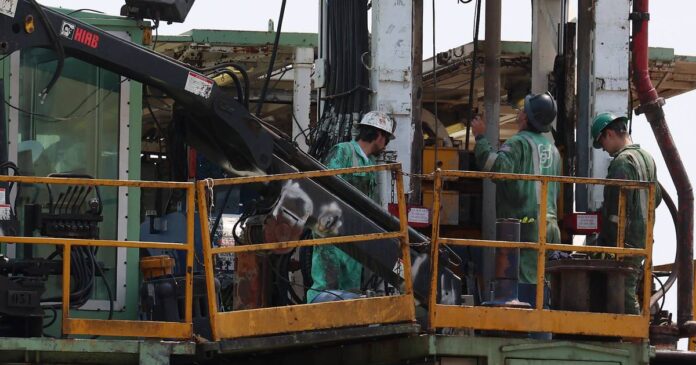In the wake of a major setback in South Dakota, Navigator CO2 — the company that wants to build a controversial 1,350-mile carbon dioxide pipeline through five states including Illinois — has laid off some workers.
Omaha-based Navigator CO2 released only a brief statement that did not say how many people were laid off or exactly when.
“Navigator has recently reduced some of our internal staffing and external contractors as we are evaluating the project’s next steps,” the statement said.
In September, South Dakota regulators dealt Navigator a serious blow by denying the company’s application to build part of the pipeline there. After that, Navigator paused its application to build in Iowa.
Then, on Oct. 10, Navigator withdrew its application to build in Illinois, where the Illinois Commerce Commission had been considering whether to allow construction and eminent domain, in which land can be seized for public use.
Navigator didn’t rule out the option that it would file a new application in Illinois, saying it wanted to retain the option to do so “if appropriate.”
Navigator “has elected to reassess the route and other aspects of the (pipeline system),” the motion said.
At the time, Navigator released a statement that read in part, “As is consistent with our recent filings in neighboring jurisdictions, Navigator will be taking time to reassess the route and application. Being cognizant of (Illinois Commerce Commission) resources, Navigator will withdraw its current application with the intent to reinitiate Illinois permitting, if appropriate, when Navigator’s full evaluation is complete.”
The Coalition to Stop CO2 Pipelines, which includes Illinois landowners and environmentalists, responded by calling for a moratorium on carbon dioxide pipeline construction until state regulations are in place and the federal government completes new safety rules, which are expected next year.
“Make no mistake — Navigator is reassessing their project, but they’re not going away, and we will not go down without a fight,” Citizens Against Heartland Greenway Pipeline board member Steve Hess said in a written statement at the time. “While we await federal regulations from the Pipeline and Hazardous Materials Safety Administration (PHMSA) and state regulations on (carbon capture and storage) projects from the Illinois General Assembly, a temporary moratorium on CO2 pipelines is critical in order to protect Illinoisans, our land, and our water.”
The Illinois application withdrawal is the latest twist in a two-year, multistate battle in which farmers and other landowners have pushed back hard against the prospect of underground pipes carrying a potentially suffocating gas.

Afternoon Briefing
Weekdays
Chicago Tribune editors’ top story picks, delivered to your inbox each afternoon.
The pipeline, one of three major CO2 pipeline projects proposed for the Midwest, would take planet-warming CO2 captured at ethanol and fertilizer plants and transport it to naturally occurring storage areas deep underground in central Illinois. The plan is to trap the CO2, ideally for thousands of years.
Navigator says that the proposed pipeline would prevent up to 15 million metric tons of CO2 from entering the atmosphere each year — the equivalent of taking 3.2 million cars off the road annually.
Scientists generally agree that carbon capture and storage will be needed if the U.S. is to achieve net zero emissions by 2050 and prevent some of the worst effects of climate change. The Inflation Reduction Act, the nation’s signature climate bill, increased tax credits for permanent CO2 storage to as much as $85 per metric ton.
But Navigator opponents point out that CO2 has never been stored underground at this scale before, and they have voiced concerns about crop yields, property values and personal safety. When a CO2 pipeline ruptured near Satartia, Mississippi, in 2020, releasing a cloud of invisible gas, there were reports of breathing problems, confusion and loss of consciousness.
No one died, but 45 people sought medical care at local hospitals.
Navigator has said the pipeline can be operated safely and the company has pointed to thousands of miles of CO2 pipeline already in use in the United States, mostly by the oil industry, which uses carbon dioxide to boost production.



